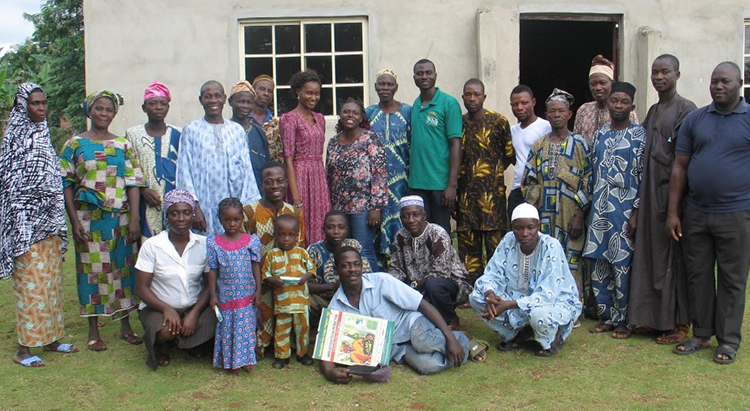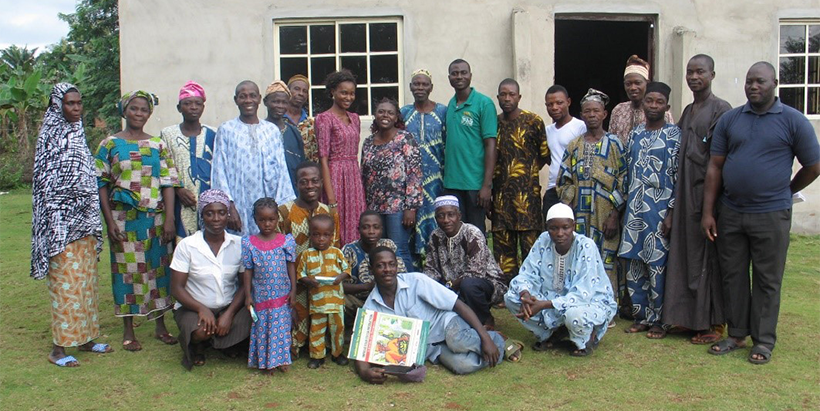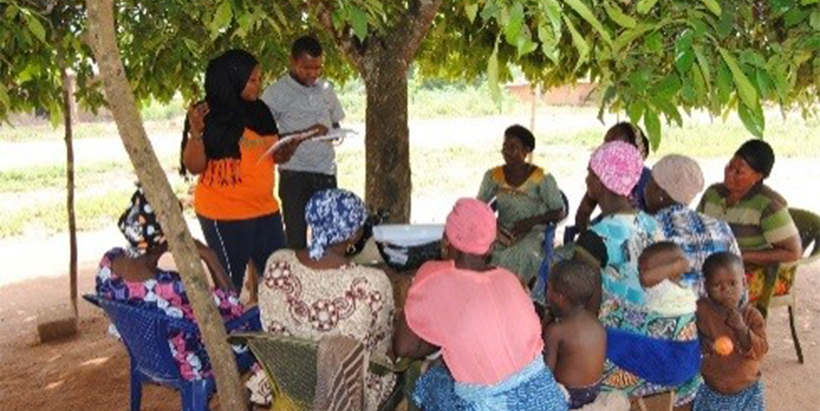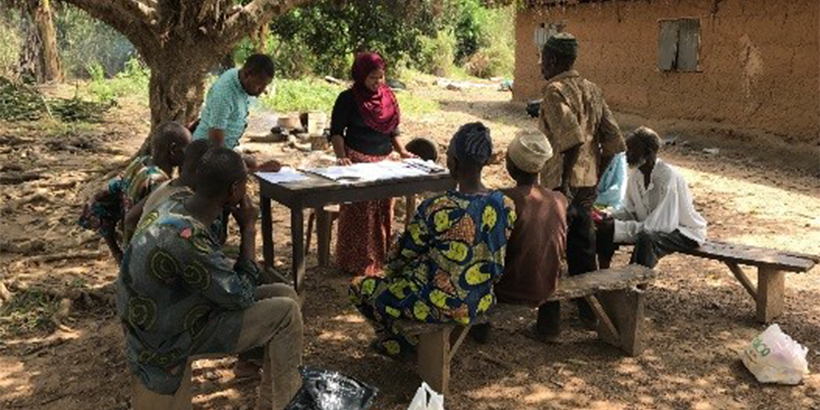
Understanding the gender dimensions of the spread of banana diseases in Nigerian communities
Seeds are essential agricultural inputs in food production, biodiversity conservation, and overall crop yield. However, seeds can carry plant pathogens and serve as vehicles for pathogen spread, naturally and through formal and informal seed distribution, from one season to the next, and within and between geographies. The global spread of the banana bunchy top virus (BBTV), the causal agent of banana bunchy top disease (BBTD), is one notorious example of a pathogen that spreads along with infected planting materials and causes widespread devastation wherever they are introduced.
BBTD is the most devastating disease of banana and plantain. The disease spreads through the use of infected vegetative propagules, and the banana aphid is the virus vector. A team of IITA scientists carried out a study to understand the gender dimensions and sociocultural aspects of banana seed (vegetative propagule) sourcing and sharing practices among men and women farmers and their influence on BBTD spread and disease control efforts.

Dr Lilian Nkengla-Asi (Middle), after a brief introductiory discussion on gender research with men and women banana farmers in Idologun community/study site.
The study was undertaken in three communities (Idologun, Odon, and Olokuta) in BBTD-affected Yewa-South Local Government Area in Ogun State, and three communities (Aba-paanu, Olowa, and Adejare) in Ido LGA in Oyo State, which is free of BBTD. The team led by Lilian Nkengla-Asi, a Gender Scientist, collected data from 300 banana farmers consisting of 187 men and 113 women in BBTD and non-BBTD areas in southwest Nigeria. They identified gender-differentiated roles, responsibilities, and choices in banana seed selection, sourcing, and distribution between men and women within the two sets of communities.
The results revealed that seed sharing within the communities is a social responsibility. Members of the communities are expected to share banana seed with the needy mainly as gifts rather than sold for cash. Men farmers generally sourced seed from old fields, while women sourced seed from relatives. However, harvesting banana seed was predominantly the responsibility of men, with women as helpers.
The results also indicated that both men and women farmers in the non-BBTD area cultivated larger farm sizes and harvested more banana planting material than farmers in the BBTD areas. The existing seed sourcing practices among men and women farmers heighten the risk of BBTD spread through planting materials within the communities. However, the risk of BBTD introduction into communities is higher in the seed sourcing activities of men because of their role in the long-distance movement of seed, which often contributes to the wide dissemination of seed-transmitted diseases.
Understanding the complex social relationships within households and communities will inform better targeting and design of appropriate interventions that promote inclusion and improve access to quality and clean seeds to men and women farmers. Furthermore, Nkengla-Asi et al. suggested that raising awareness on disease spread through infected seeds should consider gender-differentiated roles and social practices to reduce its spread within communities.

Facilitators: IITA researchers, Ladigbolu Temitope and Eforuoku Favour, facilitating the women focus group discussion.
“A reliable, clean seed supply system is crucial for the sustainable management of BBTD and recovery of BBTD-affected communities,” she said. Nkengla-Asi also suggested that the research community and extension agencies should use participatory approaches in field-level activities and engage all stakeholders in management interventions to ensure that the BBTD-free areas continue to remain so.
The team agreed that national and local governments collaborating with research institutes, farmer groups, and NGOs should facilitate making clean seeds available for farmers. This is because strategic partnerships through collaboration and alliances are essential for the effective management of the disease at community, regional, and global levels.

